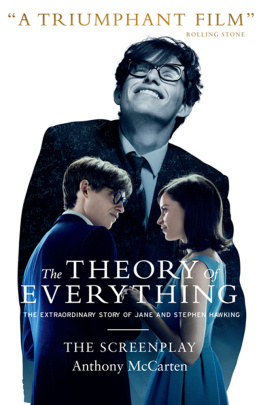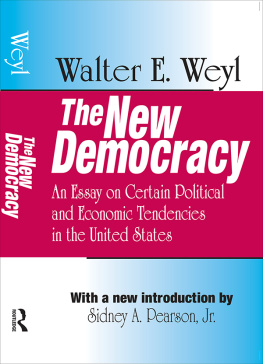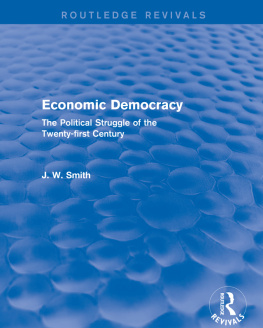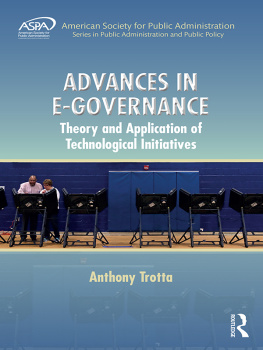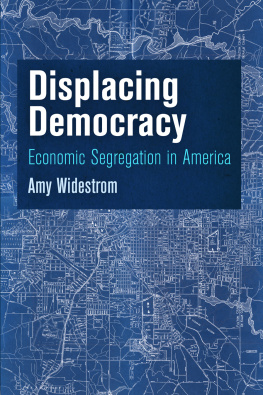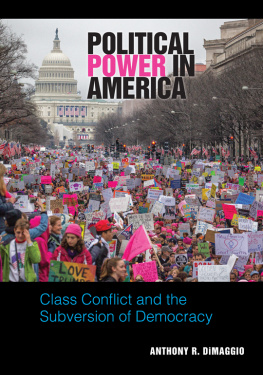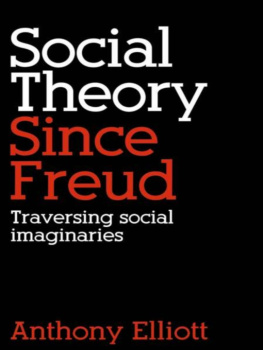Anthony Downs - An Economic Theory of Democracy
Here you can read online Anthony Downs - An Economic Theory of Democracy full text of the book (entire story) in english for free. Download pdf and epub, get meaning, cover and reviews about this ebook. year: 2020, genre: Politics. Description of the work, (preface) as well as reviews are available. Best literature library LitArk.com created for fans of good reading and offers a wide selection of genres:
Romance novel
Science fiction
Adventure
Detective
Science
History
Home and family
Prose
Art
Politics
Computer
Non-fiction
Religion
Business
Children
Humor
Choose a favorite category and find really read worthwhile books. Enjoy immersion in the world of imagination, feel the emotions of the characters or learn something new for yourself, make an fascinating discovery.

- Book:An Economic Theory of Democracy
- Author:
- Genre:
- Year:2020
- Rating:3 / 5
- Favourites:Add to favourites
- Your mark:
- 60
- 1
- 2
- 3
- 4
- 5
An Economic Theory of Democracy: summary, description and annotation
We offer to read an annotation, description, summary or preface (depends on what the author of the book "An Economic Theory of Democracy" wrote himself). If you haven't found the necessary information about the book — write in the comments, we will try to find it.
An Economic Theory of Democracy — read online for free the complete book (whole text) full work
Below is the text of the book, divided by pages. System saving the place of the last page read, allows you to conveniently read the book "An Economic Theory of Democracy" online for free, without having to search again every time where you left off. Put a bookmark, and you can go to the page where you finished reading at any time.
Font size:
Interval:
Bookmark:

 H ARPER& R O WPU B L ISH ER SN E W YO RK
H ARPER& R O WPU B L ISH ER SN E W YO RK 
an economic theory of democracy . Copyright 1957, by H arper 6 Row,Publishers, Incorporated. Printed in theUnited States o f America. All rights inthis book are reserved. No part o f the bookmay be used or reproduced in anymanner whatsoever without vmtten permission except in th e case o f brief qu otations em bodied in critical articles and reviews. For inform ation address Harper <5Row, Publishers, Incorporated, 49 East 33rd Street, N ew York, N . Y. 10016
B A S ICS T R U C T U R EO FT H EM O D E L 1. Introduction32. Party Motivation and the Functionof Government in Society213. The Basic Logic of Voting364. The Basic Logic ofGovernment Decision-Making 51 P A R TI I
T H EG E N E R A LE F F E C T SO FU N C E R T A I N T Y 5. The Meaning of Uncertainty776. How Uncertainty Affects GovernmentDecision-Making827. The Development of Political Ideologies asMeans of Getting Votes968. The Statics and Dynamics of Party Ideologies 1149. Problems of Rationality UnderCoalition Governments 14210. Government Vote-Maximizing andIndividual Marginal Equilibrium164 V
viCONTENTS
PA RT III
SPEC IFIC E F F E C T S O F INFORMATION COSTS 13. T h e Returns from Information
and Their Diminution238 PART IV
DERIVATIVE IM PLICA TIO N S AND H YPO TH ESES 15. A Com m ent on Econom ic Theories
of Government Behavior279
Like all supposedly original works, this study owes a great deal ofits content to the thoughts and efforts of persons other than theauthor. I would especially like to thank Kenneth Arrow for all thehours he devoted to guiding and correcting my thinking and for themany excellent ideas he contributed. I would also like to thankRobert A. Dahl and Melvin W . Reder, both of whom read themanuscript and made many suggestions that I have incorporated. Inaddition, my gratitude goes to Dorothy W ynne, who corrected several errors in the first draft of Chapter 10; to Julius Margolis, whose interest and patience in early discussions of the topic encouraged me to embark on this study; and to Mrs. Carolyn Young and JamesSmith, who handled the extensive labors of typing and editing thefinal draft. Finally, I would like to thank the Office of Naval Research for the grant that made this study possible. Naturally, whatever errors remain herein must be counted as part of my own original contribution.
An t h o n y Do w n s Stanford UniversityThis book seeks to elucidate its subjectthe governing of democratic statesby making intelligible the party politics of democracies.That was the proper point at which to attack the intellectual problemthe author chose for himself, or so it seems to me. It is a fact thatcompetitive party systems are a conspicuous feature of virtually allthose nations the non-Communist world thinks of as democratic. Itis an even more important fact that what is involved in governing, andin the competition to control the offices of government, amounts to very much the same thing. Fundamentally, governing means gettingpeople to do things, or getting them to refrain from doing things. Those who have the formal authority to govern, if they are to governactually, must seek to find out who is with them and who is against them. In modern democratic states these intelligence and propagandaoperations are party politics, or mainly that. A theory of democracy that fails to take account of this fact is of little help in giving us anappreciation of the kinds of actions we may expect of democraticgovernment.
Having given party politics a central place in his thought aboutdemocracy, Downs treats it very differently than do other students ofpolitics. His entire effort is to account forwhat parties and voters do. His explanations are systematically related to, and deducible from, precisely stated assumptions about the motivations that attend the decisions of voters and parties and the environment in which they act. He is consciously concerned with economy in explanation, that is,with attempting to account for phenomena in terms of a very limitednumber of facts and postulates. He is concerned also with the central
IX
XFOREW ORD
features of party politics in anydemocratic state, not with that in the United States or any other single country. Downs book does not inany sense make obsolete the careful and impressively documenteddescriptions of partisan activities that characterize the best previouswork in the field. It is rather a starting point for ordering and assigningsignificance to the findings of a great deal of past and future research.
Downs assumes that political parties and voters act rationally inthe pursuit of certain clearly specified goalsit is this assumption, in fact, that gives his theory its explanatory power. Most of us aresuch uncritical children of Freud that to say, He did that because he decided it was the best way to get what he wanted, is apt to strikeus as not very profound. Yet, just as firms that do not engage in therational pursuit of profit are apt to cease to be firms, so politicians who do not pursue votes in a rational manner are apt to cease to be politicians. The behavior of voters may be ignorant but that is notequivalent to its being irrational. The usefulness of assuming rationality on the part of political actors, quite obviously, must be rigorouslytested against experience, but its claims to usefulness ought to be clearfrom what Downs has done with that assumption.
I cannot say, even in this Foreword, that Anthony Downs AnEconomic Theory of Democracy is a book without faults. I can sayquite sincerely that there are few books that have had so great an impact on my thinking, or that I would like so much to have written. Some years from now I shall be surprised if Downs work is not recognized as the starting point of a highly important development in thestudy of politics; its influence is already considerable and continues to grow.
St a n l e y Ke l l e y, Jr. Princeton, N.J.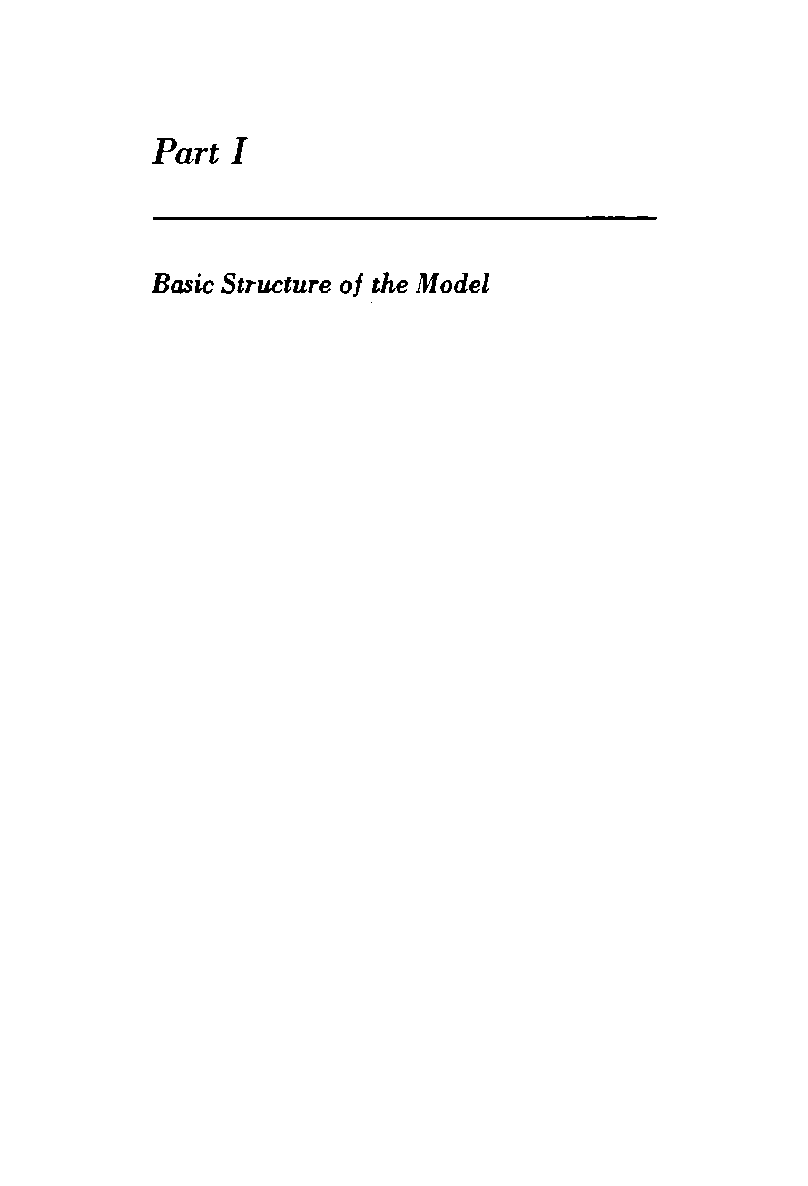
Introduction
T h r o u g h o u t the world, governments dominatethe economic scene. Their spending determines whether full employment prevails; their taxes influence countless decisions; their policiescontrol international trade; and their domestic regulations extendinto almost every economic act.
Yet the role of government in the world of economic theory is notat all commensurate with this dominance. True, in each separate field of economics, recent thought has fruitfully concentrated upon the impact of government on private decision-making, or the share of government in economic aggregates. But little progress has beenmade toward a generalized yet realistic behavior rule for a rational government similar to the rules traditionally used for rational consumers and producers. As a result, government has not been successfully integrated with private decision-makers in a general equilibriumtheory.
Font size:
Interval:
Bookmark:
Similar books «An Economic Theory of Democracy»
Look at similar books to An Economic Theory of Democracy. We have selected literature similar in name and meaning in the hope of providing readers with more options to find new, interesting, not yet read works.
Discussion, reviews of the book An Economic Theory of Democracy and just readers' own opinions. Leave your comments, write what you think about the work, its meaning or the main characters. Specify what exactly you liked and what you didn't like, and why you think so.

